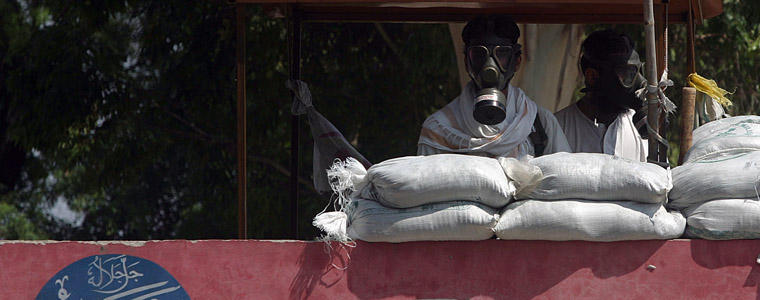Domestic Barriers to Dismantling the Militant Infrastructure in Pakistan
Read the Event CoverageUSIP hosted a discussion on November 4, 2013 on the nature of Islamist militancy that examined the barriers to dismantling the militant infrastructure in Pakistan.

Pakistan’s inability to tackle Islamist militancy within its borders and to prevent cross-border attacks from its soil remains a constant worry for the world. While the Pakistani state pledges lack of capacity to deal with the various facets of the militant challenge, the world is unconvinced of the ‘will’ of the Pakistani leadership to fight with determination. The Pakistani security establishment has been seen as selectively targeting certain Islamist outfits while ignoring, supporting, or abetting others.
Despite constant debate on the issue, there have been few attempts to holistically examine the factors that impede Pakistan’s counter-terrorism efforts. Pakistan and its foreign allies tend to talk past each other. Stephen Tankel’s report, Domestic Barriers to Dismantling the Militant Infrastructure in Pakistan, published by the USIP Pakistan program, seeks to address this void by holistically examining the constraints and policy choices that dictate Pakistan’s outlook towards Islamist militants operating from on its soil.
USIP hosted a panel discussion on Monday November 4 marking the launch of this monograph.
Speakers
Andrew Wilder
Vice President, South and Central Asia, U.S. Institute of Peace
Thomas Lynch
Distinguished Research Fellow, Center for Strategic Research, Institute for National Strategic Studies, National Defense University
Daniel Markey
Senior Fellow for India, Pakistan, and South Asia, Council on Foreign Relations
Stephen Tankel
Assistant Professor, Department of Law, Justice, and Society, American University



